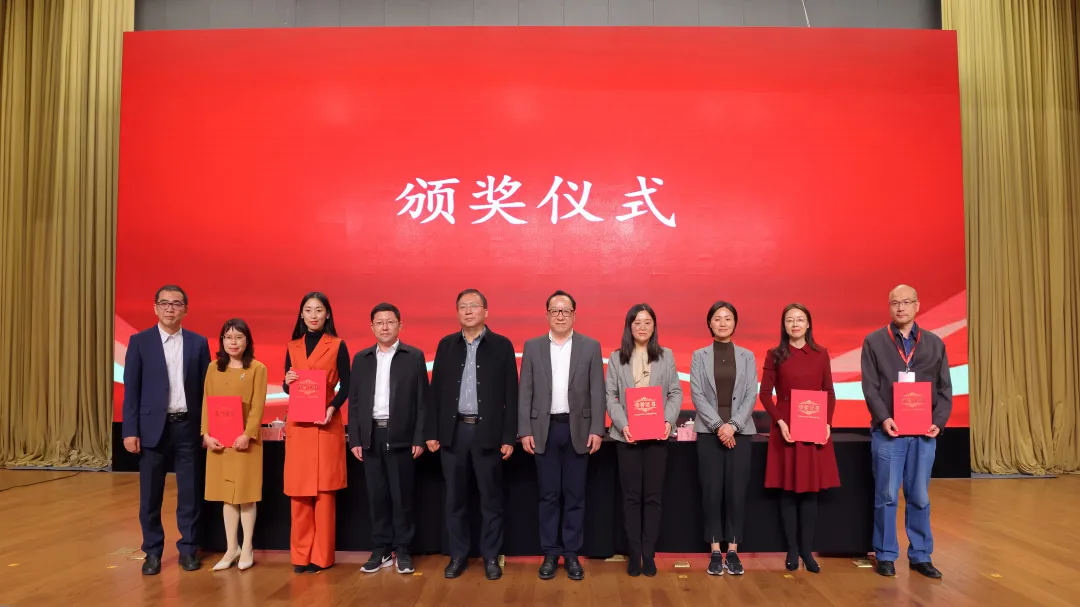On October 30, 2021, the Opening Ceremony of the 15th Academic Conference of Jiangsu Provincial Federation of Philosophy and Social Sciences and the Special Session on Marxist Theory was held at Nanjing University (NJU). The event was hosted by the Publicity Department of the CPC Jiangsu Provincial Committee and Jiangsu Provincial Federation of Philosophy and Social Sciences and organized by NJU. The theme of this academic conference is “to learn from and be empowered by the CPC’s centenary endeavors and to stay at the forefront of leading in the realization of socialist modernization”, and the major topic for the special session on Marxist Theory is “the Party’s original aspiration and missions and adapting Marxism to the Chinese context.”
Over 300 people attended the event, including leaders from various departments such as the Publicity Department of the CPC Jiangsu Provincial Committee, the heads of social science federations at municipal and district levels and organizers of the Academic Conference, the deans of Schools of Marxism at higher education institutions, such as the Party School of the Central Committee of CPC, Nanjing University, and Southeast University, the persons in charge of bases under the Jiangsu Province Research Center of Theoretical System of Socialism with Chinese Characteristics, the heads of social science departments of some universities (the secretary-general of social science federations), the directors of relevant departments in NJU, the representatives of authors of award-winning papers and faculty members and students of NJU, as well as journalists from relevant news media. Both Hu Jinbo, secretary of the CPC Committee of NJU, and Zhang Aijun, member of the Standing Committee of the CPC Committee and head of the Publicity Department of Jiangsu Province, delivered a speech at the opening ceremony. Zhang Xinke, secretary of the Party Leadership Group and executive deputy chairperson of Jiangsu Provincial Federation of Philosophy and Social Sciences, presided over the opening ceremony.
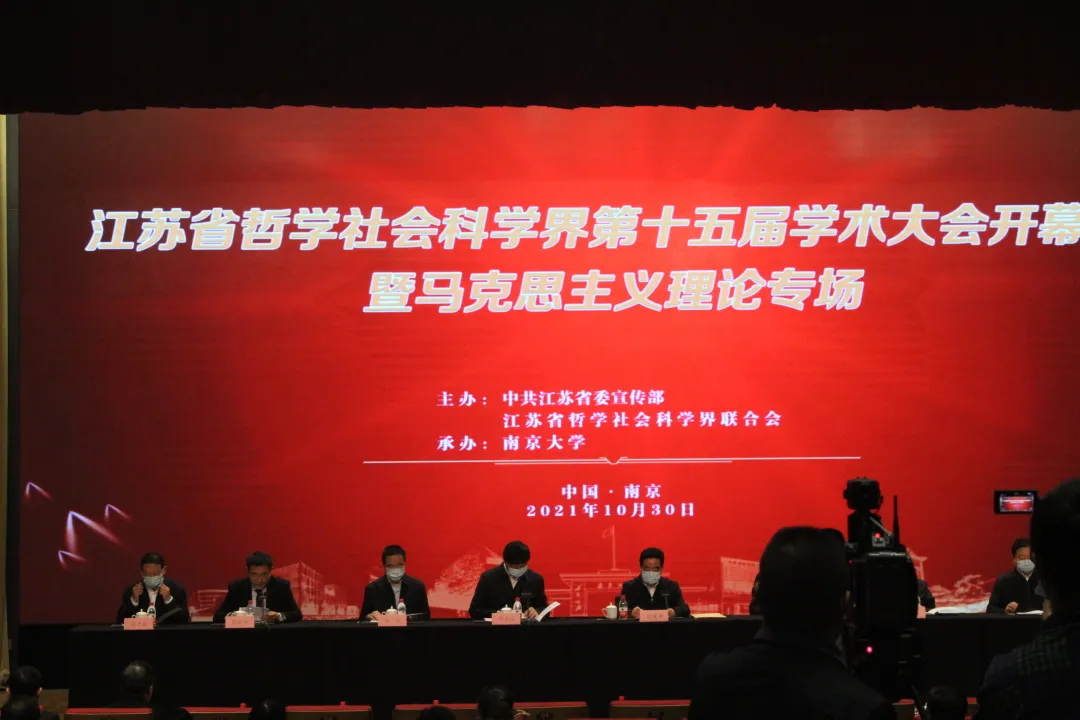
Hu Jinbo emphasized that in the new era, NJU should actively take on the noble responsibility of promoting the development of the philosophy and social sciences system, academic system, and discourse system with Chinese characteristics. Under the guidance of Xi Jinping Thought on Socialism with Chinese Characteristics for a New Era, NJU will fully use its disciplinary expertise and seize the momentum. From his perspective, in order to advance the research, dissemination, and education of Marxist theory, we should first reinforce top-level planning, leverage the guiding function of Marxist theory across disciplines, and actively promote the establishment and development of interdisciplinary clusters centered on Marxist theory. Secondly, we should equally emphasize theoretical innovation and interpretation. To be more specific, we should strengthen the research and innovation of Xi Jinping Thought on Socialism with Chinese Characteristics for a New Era, focusing on establishing a knowledge foundation and academic discourse for theoretical innovation and interpretation. We must systematically organize research topics related to the new era, innovative ideas, and novel designs. Additionally, we should delve into the Party’s latest theories and align our findings with key national strategies and societal needs.
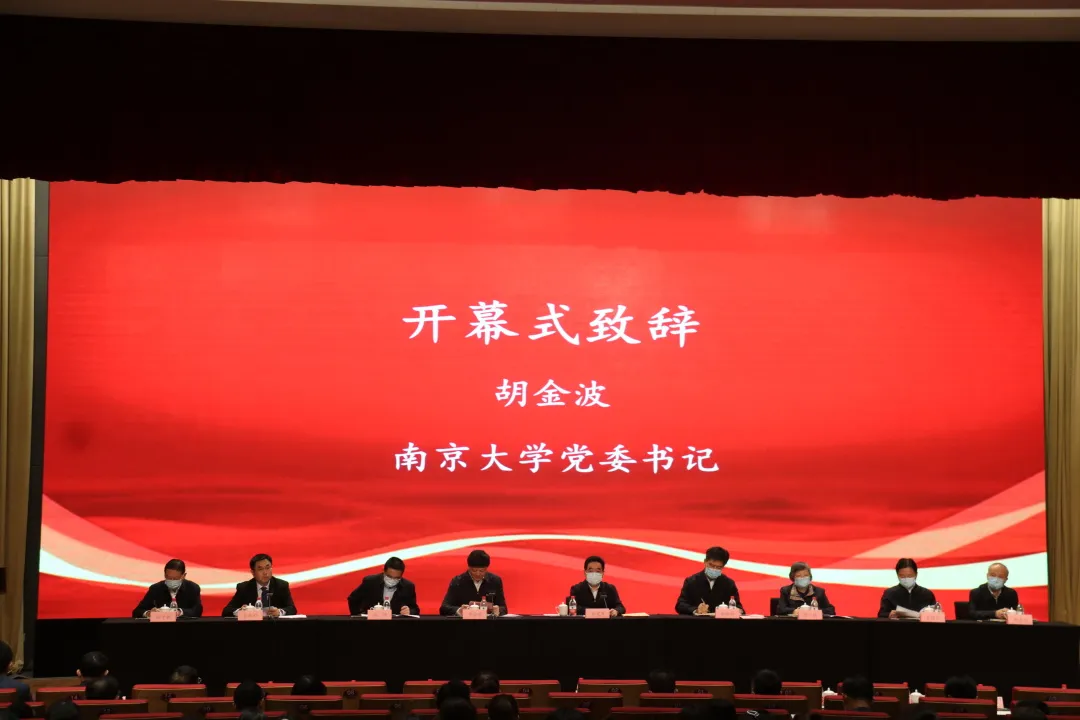
Zhang Aijun firmly believed that thoughts possess immense power, and only by upholding theoretical thinking can a nation maintain its position at the forefront of the times. He acknowledged the remarkable achievements made by social science theorists in Jiangsu over the past year. Furthermore, he analyzed in detail the significant theoretical and practical challenges encountered by scholars of social sciences during our socialist modernization process. In addition, Zhang emphasized the importance of drawing inspiration from and being empowered by the CPC’s centennial achievements to spearhead socialist modernization. He presented four expectations and requirements for scholars of philosophy and social sciences in Jiangsu. He hoped these scholars to possess the power of truth, responsibility, a people-oriented mindset, and diligence. The scholars were expected to serve the overall interests with a more profound comprehension of principles and theories, remain faithful to their initial aspirations, and ensure their empowerment and momentum. Zhang emphasized that in embarking on a new journey toward realizing the Second Centenary Goal, scholars should study the new policies for modernization, reflect upon actual circumstances, and strive to forge a better future.
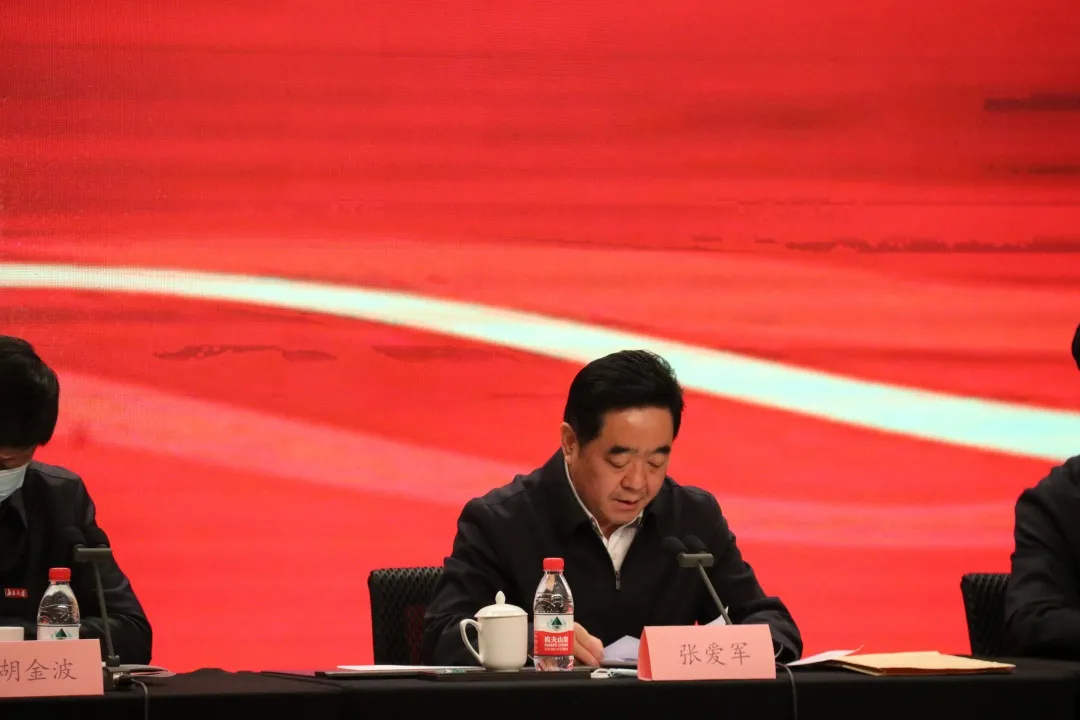
Afterward, Wang Jianhua, secretary of the CPC School of Marxism Committee at NJU, presided over the keynote speeches section. Special speakers were invited to give the keynote speeches, including Han Qingxiang, a first-grade professor at the Party School of the Central Committee of CPC, and Chen Jinlong, dean of the School of Marxism at South China Normal University and distinguished professor of the Changjiang Scholars Program of the Ministry of Education.
Prof. Han Qingxiang discussed two questions in his speech titled “How to Understand the ‘Specific Chinese Context’?” The first question was the essential function of philosophy. Prof. Han believed that the crucial role of philosophy is to provide a solution. If philosophy fails to provide a framework for interpreting and changing the world or for analyzing and addressing problems, the function of philosophy has not yet been brought into full play.The second question is the core education in the unique Chinese context. Prof. Han introduced where and how to adapt Marxism to the particular Chinese context based on the framework of interpretation, which consists of historical position, principal contradiction, fundamental challenges, and China’s path with broader supervision. The fundamental part is to identify the primary connotation of the specific Chinese context.
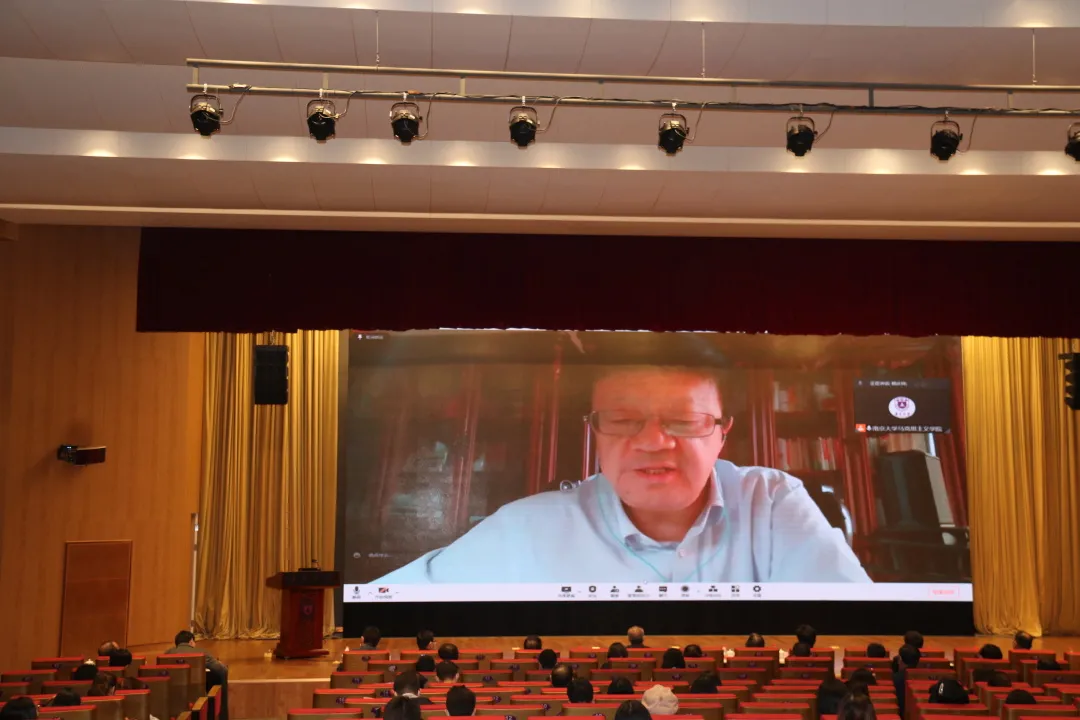
In the speech titled “The Theme of 100-year History and Expansion of the Horizon for Studying the History of the CPC”, Prof. Chen Jinlong highlighted Xi Jinping’s two speeches on the CPC, that is, the speech on a Campaign on Party History Learning and Education and the speech at a ceremony marking the centenary of the CPC on July 1, 2021. Prof. Chen pointed out that when studying the Party’s history, we should comb through the Party’s history, explain and reveal the Party’s thoughts in specific historical periods, and identify the Party’s historical themes. The period of the great rejuvenation of the Chinese nation should be viewed as a methodology and research source rather than a conclusion.
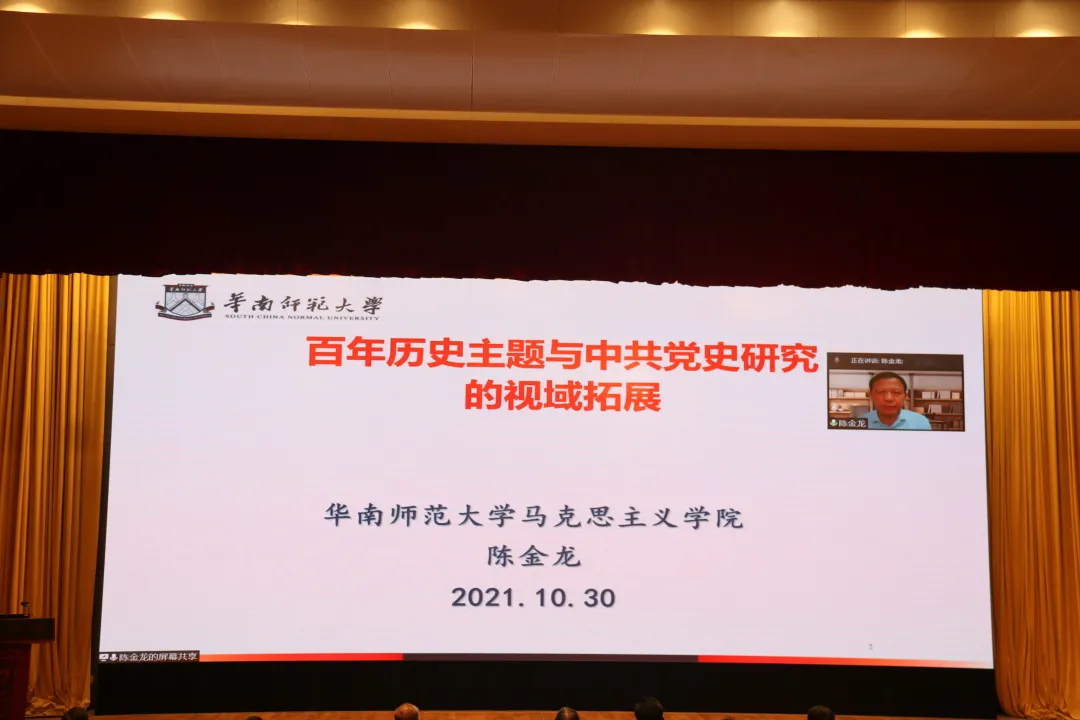
Three sections of keynote speeches were delivered in the afternoon. The first section was presided over by Liu Bihao, director of the Theory Office of the Publicity Department of the CPC Jiangsu Provincial Committee. Prof. Wang Jianhua, secretary of the CPC Committee of the School of Marxism at NJU, was the first speaker in this section. He took the Party’s two historic resolutions as examples to analyze self-revolution—one of the significant features of the CPC—from four aspects, namely “the starting point of the logic regarding the courage to admit mistakes”, “the precondition for maintaining unity within the Party,” “challenge-oriented revolution rather than a responsibility-oriented revolution,” and “revolution principle of seeking innovations based on past success”.
Prof. Wang Gang, dean of the School of Marxism at Nanjing Normal University, provided a detailed analysis of the history and essential characteristics of the Chinese path to modernization from eight aspects: thought, organization, state, funding, motivation, path, value orientation, and support.
Prof. Dai Rui, dean of the School of Marxism at Hohai University, analyzed the speech by Xi Jinping at a ceremony marking the centenary of the CPC from the perspective of ideological and political education. His speech consists of four sections: “the educational significance ideological and political language and speech in the public space”, “the expectation-oriented content configuration”, “the rhetorical style of the people-centered ideological and political education”, and “the narrative structure of ideological and political education with the characterization by integrating history with theory”.
Prof. Tian Zhijian, dean of the School of Marxism at Soochow University, made a speech on “Adapting Marxism to the Context of Chinese Civilization and Adapting Chinese Civilization to the Marxist Context”. His speech consists of three questions, namely, “defining the adaptation of Chinese civilization to the Marxist context and analyzing its implications”, “presenting the results of the innovative integration and organic unity of Marxism and Chinese civilization” and “the dialectical relationship between adapting Marxism to the Chinese context and adapting Chinese culture to the Marxist context”.
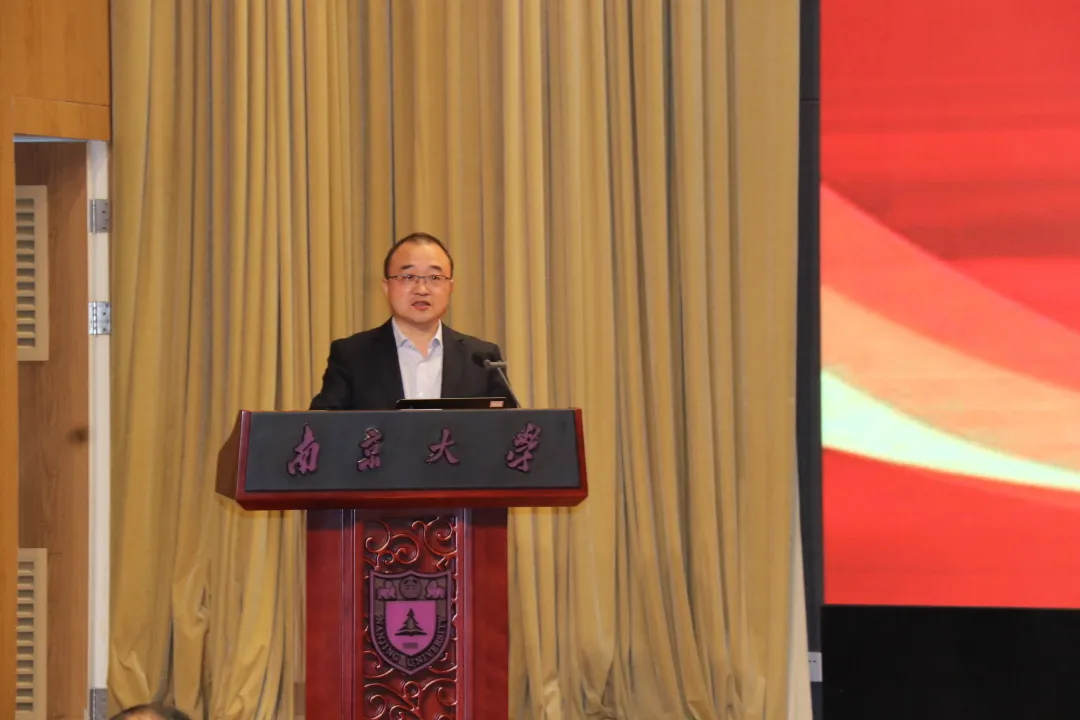
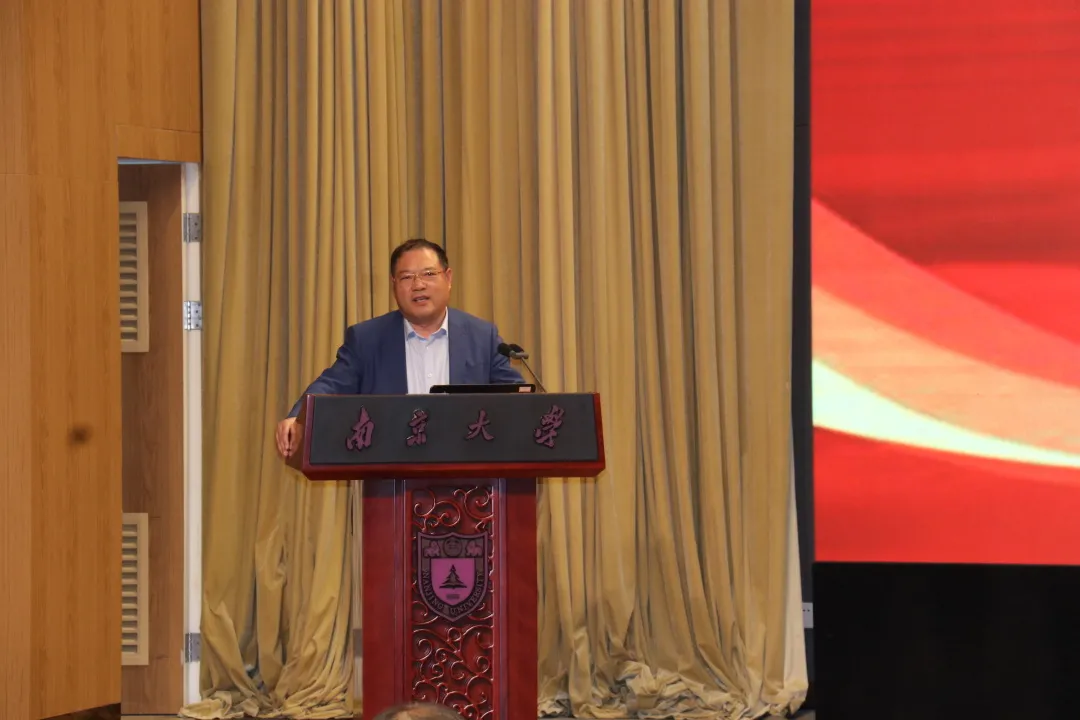
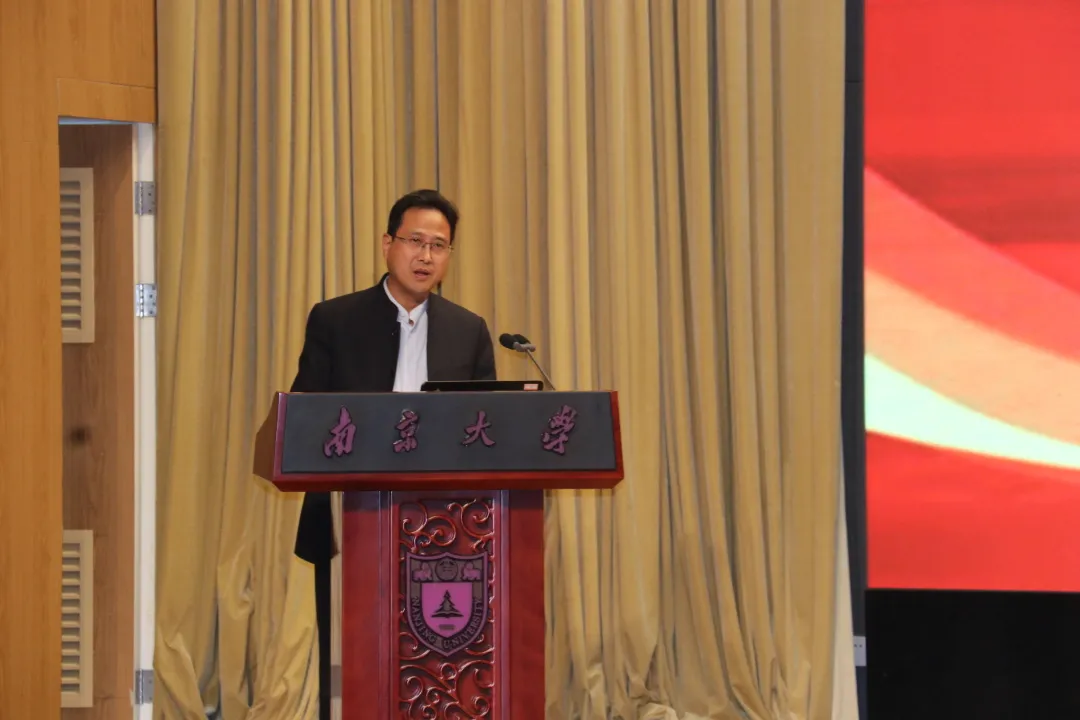
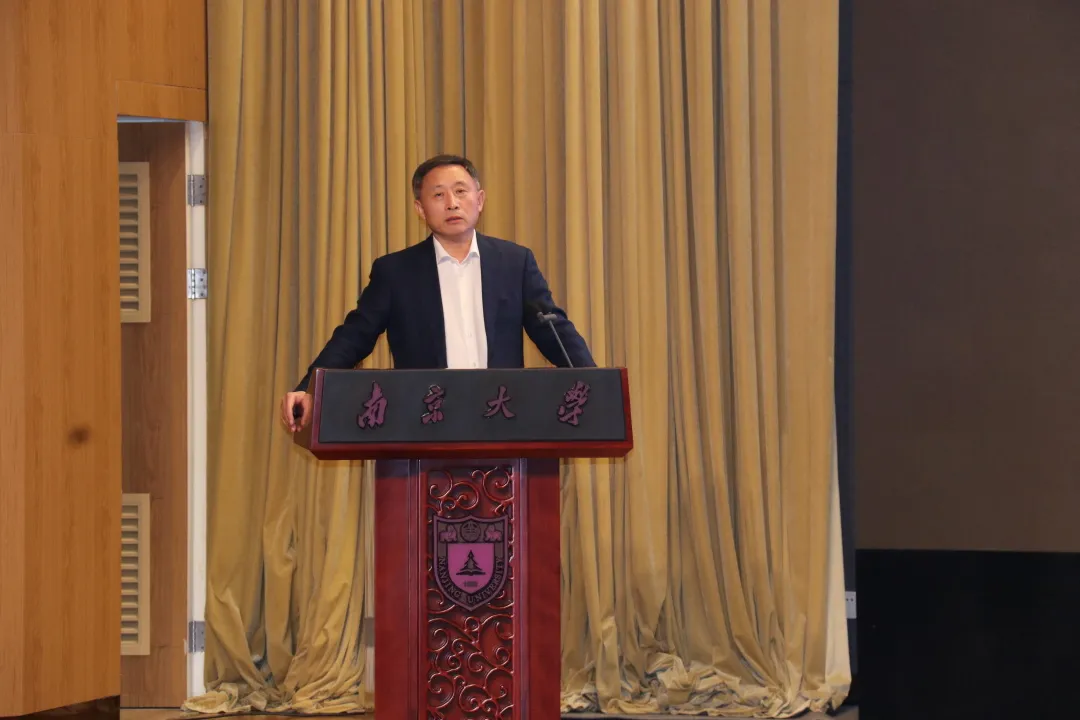
The first keynote speaker of the second section is Bu Chengliang, the Dean of the School of Marxism at the Jiangsu Provincial Party School of the Communist Party of China. He examined the theory of Marxist Chinese context from three themes: "The Starting Point and Stage of Marxist Sinicization", "Why Mao Zedong no longer studied the concept of Marxist Chinese context", and "The Theme of Marxist Chinese context".
Sun Xiaoyuan, director of the Institute of Marxism at Jiangsu Provincial Academy of Social Sciences, shared insights on how to establish a sound institutional system of the Party from five aspects.
Xiong Qiuliang, a professor from the School of Marxism at NJU, explored the new Chinese path to modernization under the leadership of the CPC. She mentioned three dimensions: “from passive to active, the progress of the Chinese path to modernization”, “from regional to country-wide, the capacity expansion for the Chinese path to modernization” and “development and innovation, the regional space and overall layout of the Chinese path to modernization.”
Niu Qingyan, a professor at Nanjing Forestry University, explored the guideline of people-centered development and the people’s leading position in Marxism from six perspectives.
Tang Huiling, a professor at Yangzhou University, proposed to develop a multi-dimensional understanding of the century-old CPC from the following three dimensions: “the centennial history of the CPC”, “history of the world socialist movement” and “comparison of international political parties”.
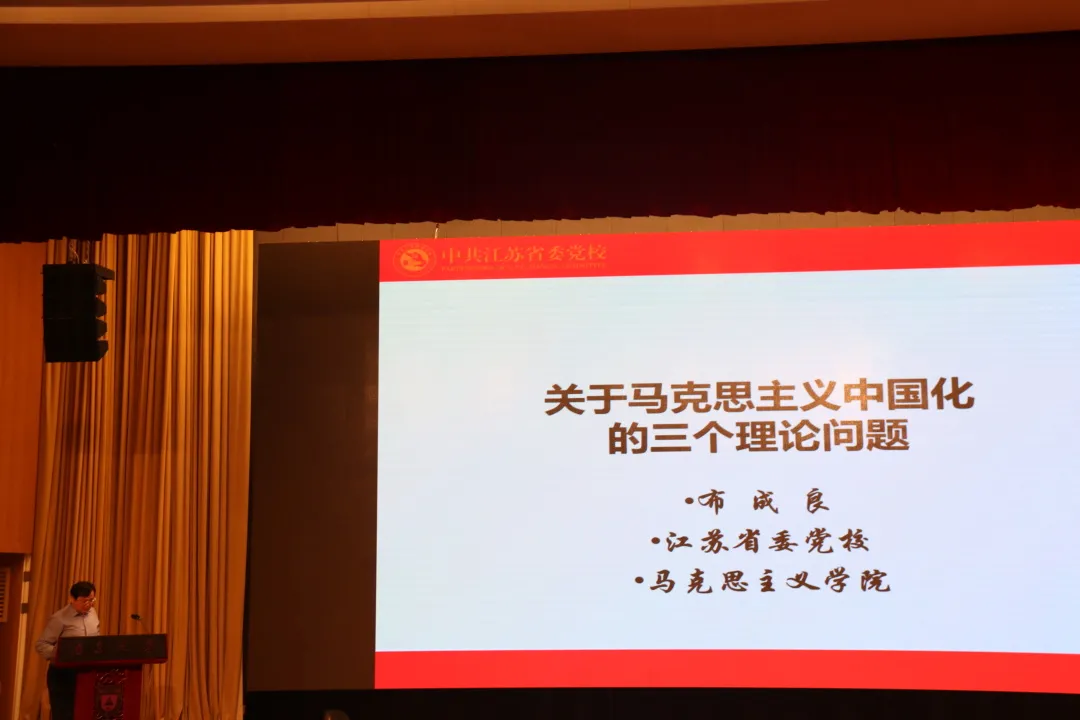
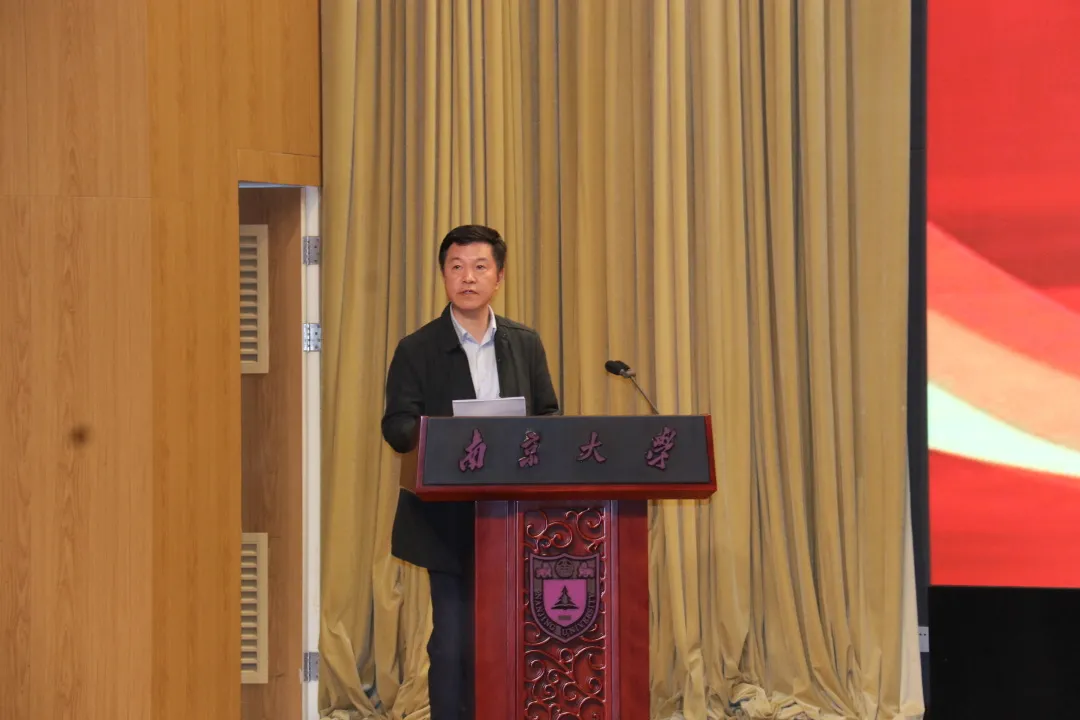
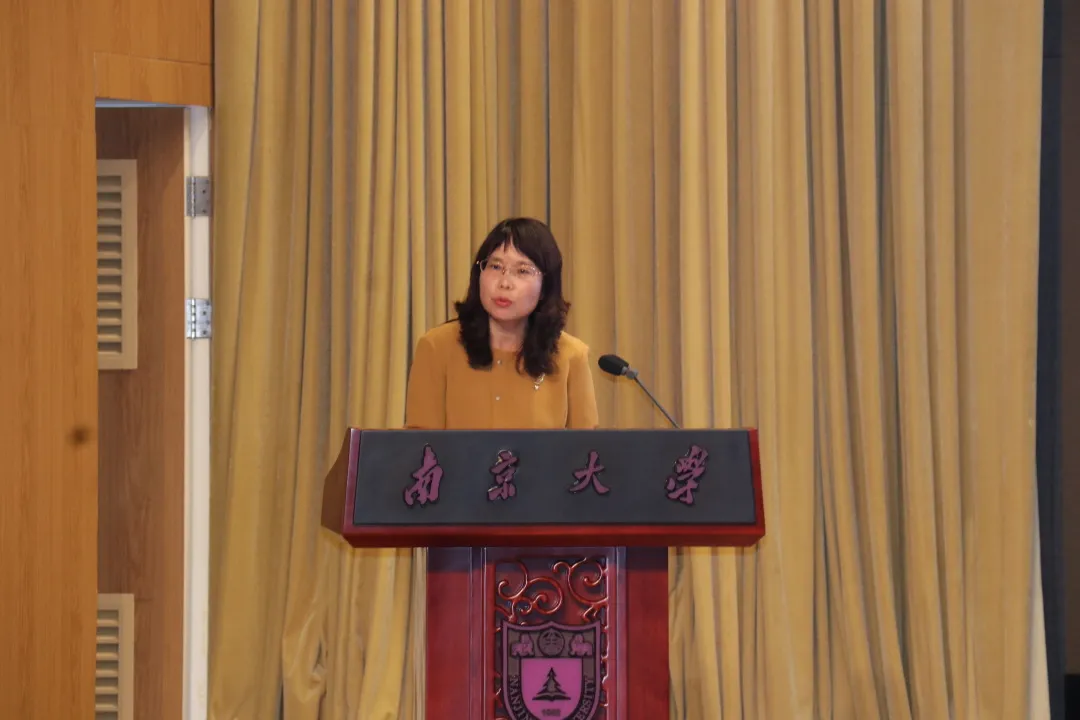
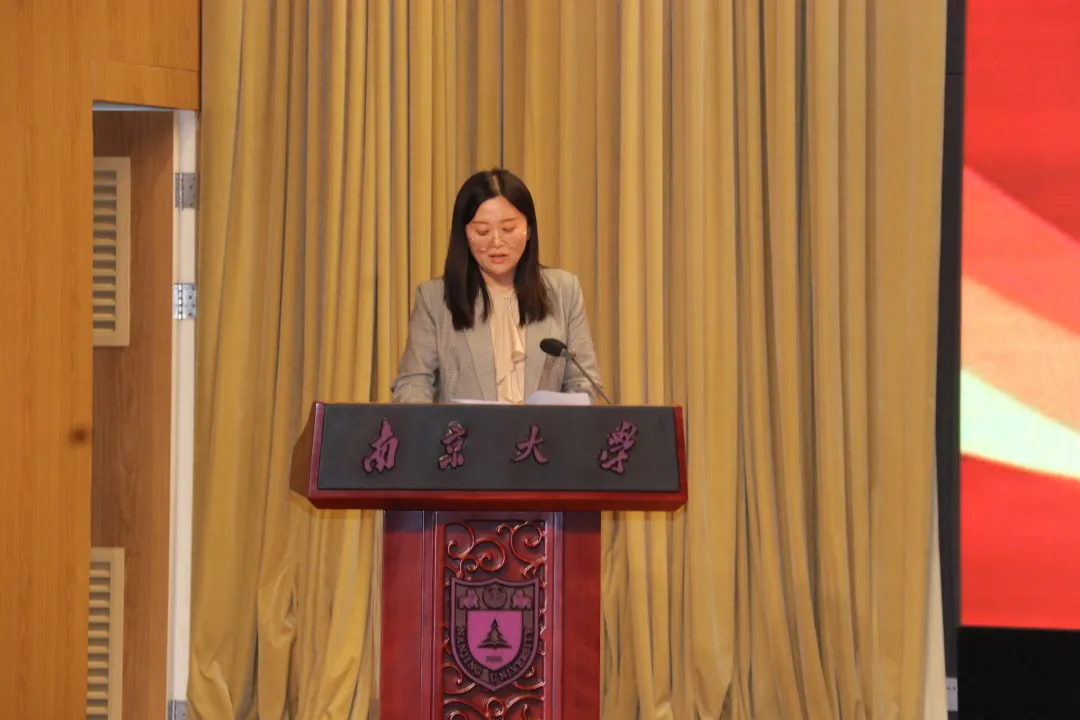
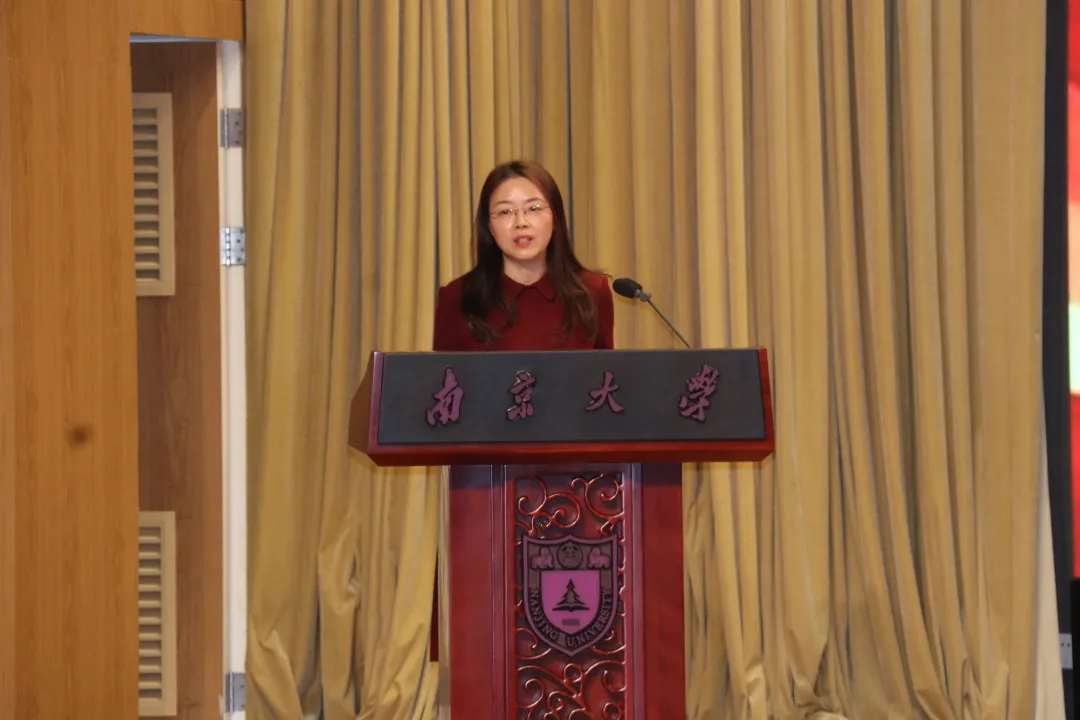
The third section was presided over by Wu Cuili, a professor and deputy dean of the School of Marxism at NJU. Liu Zhaohui, dean of the School of Marxism at Nanjing Institute of Technology, was the first keynote speaker in this section. He explored “CPC’s learning methodology” from five aspects. In Liu’s view, the communists’ learning should align with the goals and objectives and respect the objective laws by combining theories and actual efforts, major entities and individuals, history and reality, the parts and the whole, and individuals and collectivity.
Xu Kun, a lecturer at Nanjing University of Aeronautics and Astronautics, delivered an insightful presentation on “The Theoretical Connotation, Basic Characteristics, and Current Values of China’s New Path to Modernization”.
In the speech titled “A Chinese Trend in the New Form of Human Civilization,” Wang Jinyu, a professor at Nanjing Forestry University, proposed to establish a connection between the new form of human civilization and the Four Matters of Confidence—staying confident in the path, theory, system, and culture of socialism with Chinese characteristics. Prof. Wang stressed upholding the Four Matters of Confidence while exploring the path to modernization.
Chen Xue, a special research fellow of the School of Marxism at Nanjing Normal University, provided a comprehensive explanation of the “Innovative Project for Developing the Form of the Century-old Party’s Laws” in terms of thinking concepts, implication and function positioning, as well as cultural system.
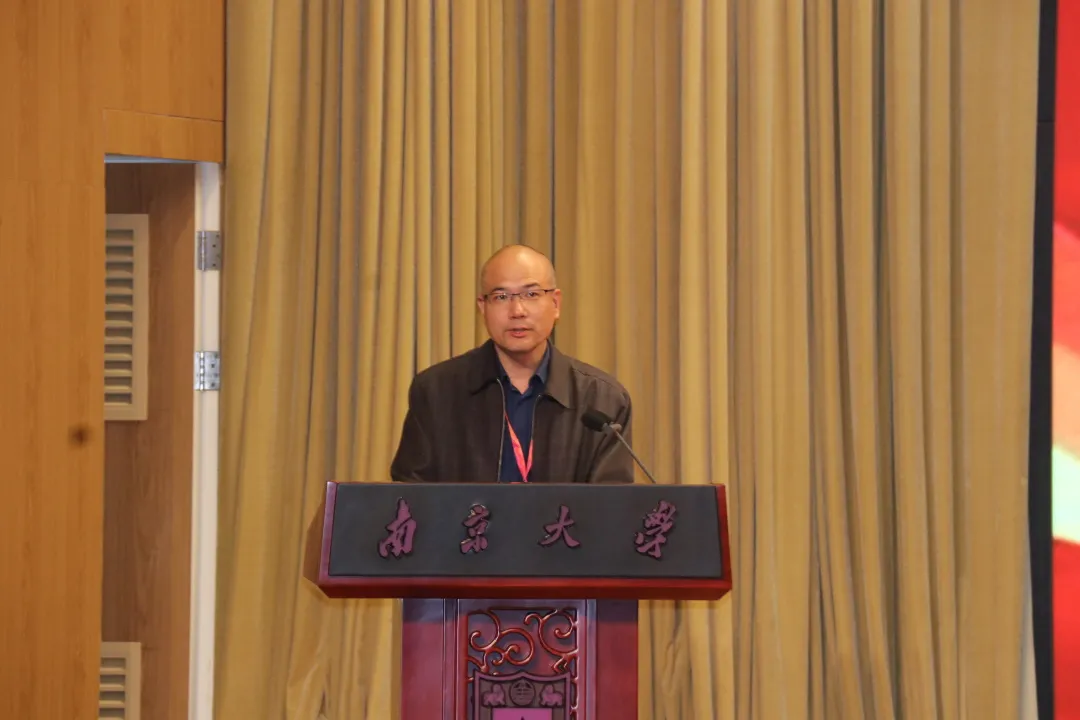
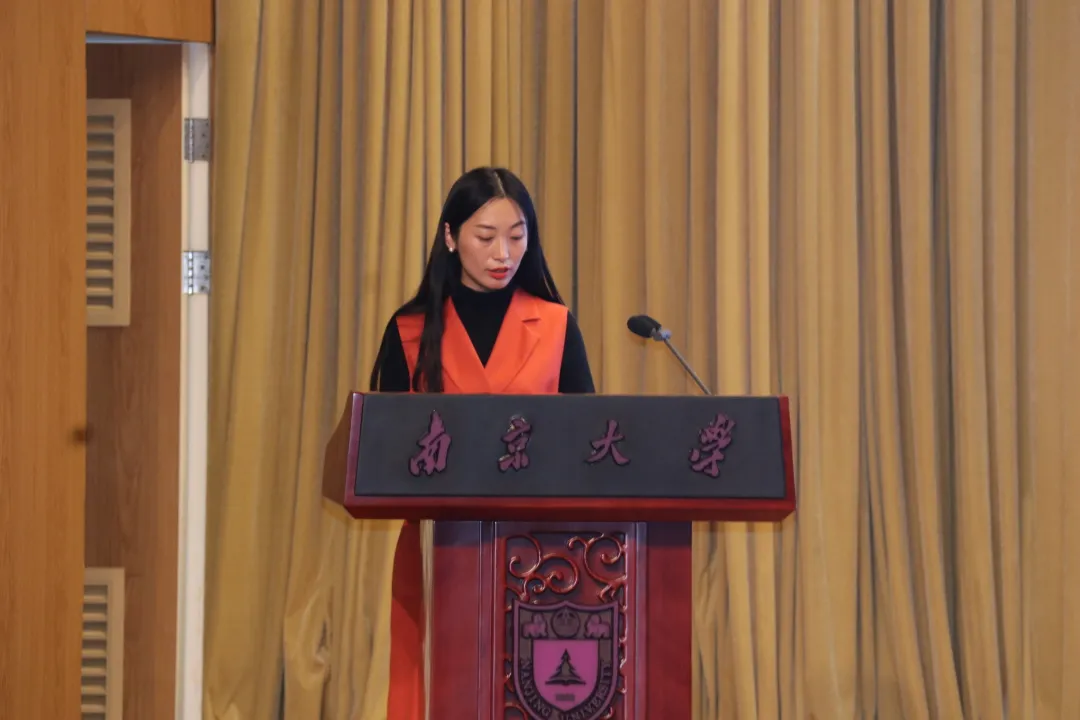
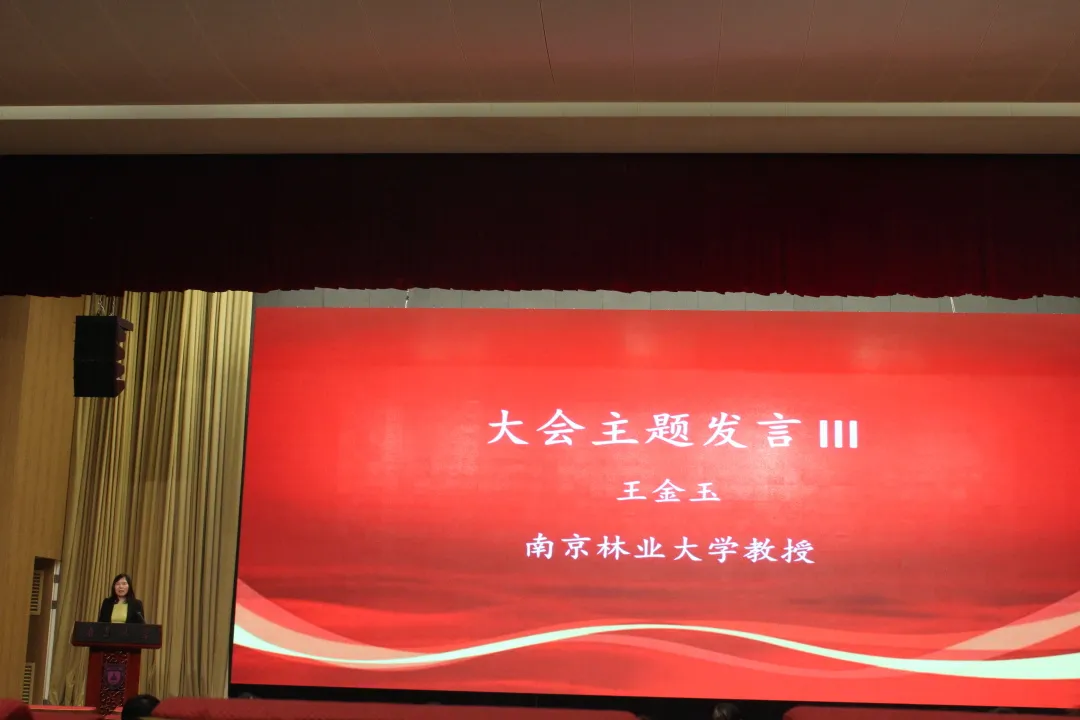
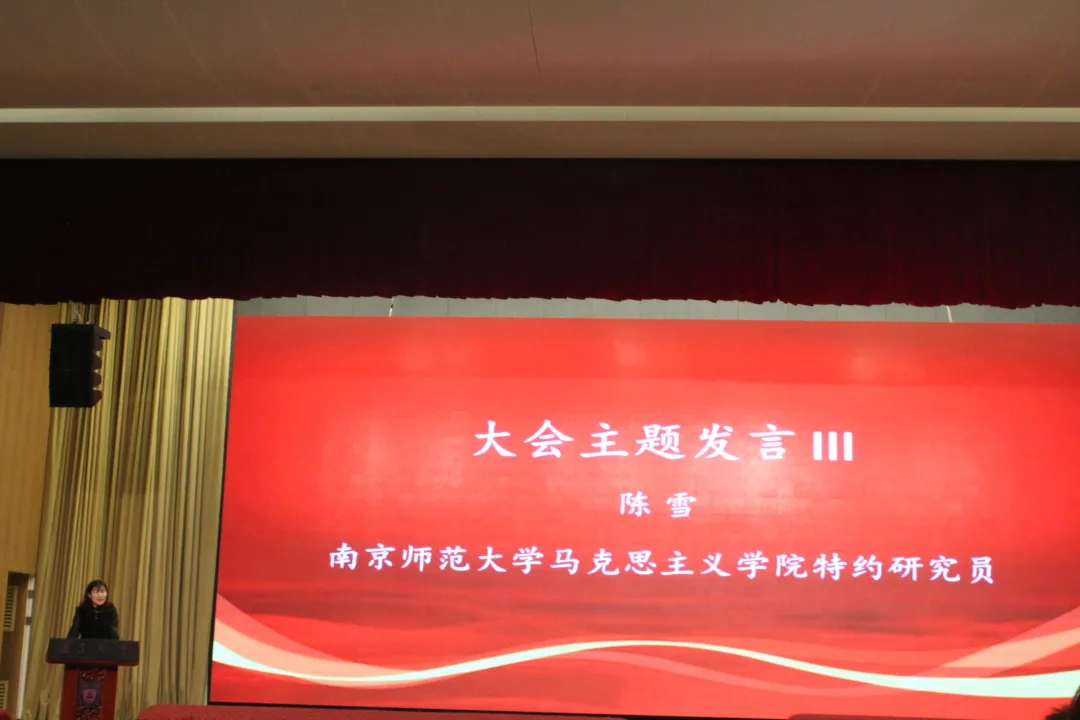
After the keynote speeches, Hu Daping, dean of the School of Marxism at NJU, summarized. Liu Bihao announced the Decision to award the authors of award-winning papers and presented awards to the author representatives.
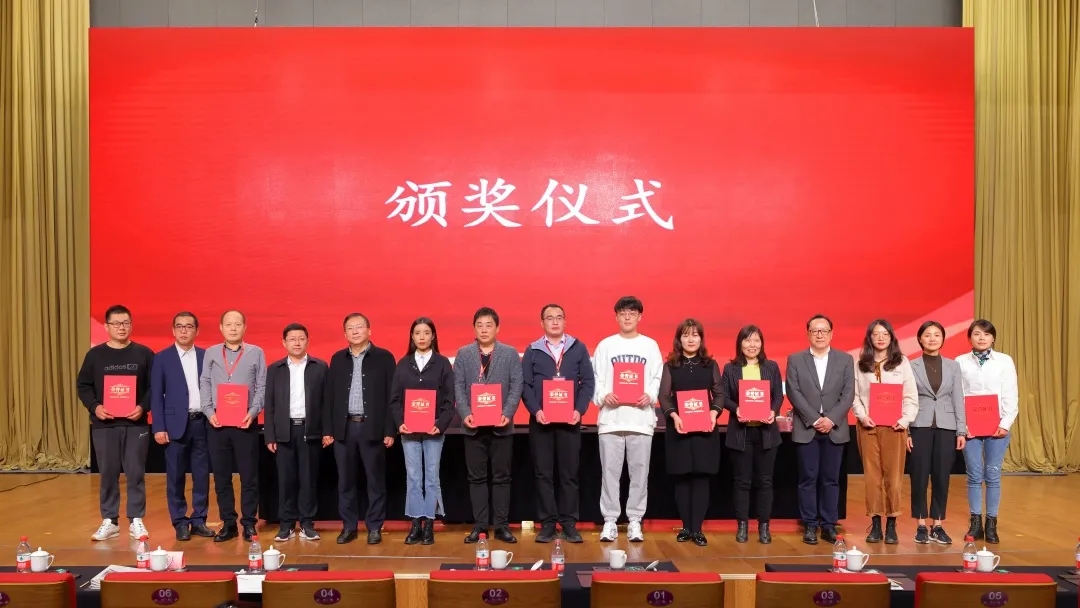
Lastly, Xu Zhishun, a member of the Party Leadership Group and deputy chairperson of the Jiangsu Provincial Federation of Philosophy and Social Sciences, gave the closing remarks. Xu congratulated the success of the academic conference and expressed his gratitude to the attendees. In addition, he gave credit to the distinctive theme and strong organizing team of this academic conference, as well as a constructive exchange of views. Xu encouraged the present researchers and workers in the field of Marxist theory to promote the open-ended development of Marxist theory disciplines by utilizing their strengths in research and development of Marxist theory and seizing the opportunity of building new arts disciplines after the 6th plenary session of the 19th CPC Central Committee.



